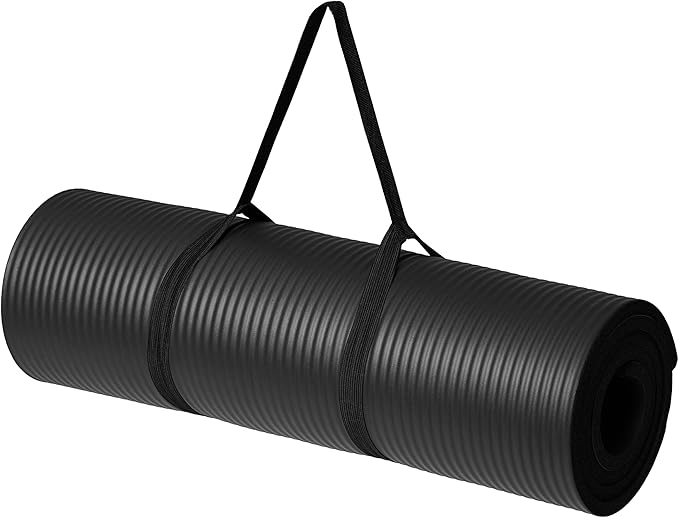“Depleting oxygen, giving a hard time; impure blood running through the veins, making it hard to survive.”
Have you ever noticed that you are falling short of breath recently, even when you are just taking a short walk and taking a few stairs?
Your heart starts racing, and your legs begin to shake. You find it hard to take another step, thinking you might fall.
If this sounds similar, then your body is sending signals that your blood oxygen level is decreasing constantly.
If you have no idea about your blood oxygen level and how you can make it normal or gradually increase it with natural processes, then this article is for you.
Here, you will learn the importance of blood oxygen level for your body, how science works behind and how you can boost it.
Importance of Blood Oxygen for Your Health
Your blood oxygen level is not something you may hear every day. But it is important to know that it plays a vital role in your body’s functions. When the oxygen level drops, your body reacts to it.
If you think it will only affect your breathing, you should know that it impacts your energy and focus and disturbs your mood.
Blood oxygen is your body’s lifeline, so it is essential to have a balanced level. A balanced blood oxygen level ensures your brain, muscles, and organs are strong and working at their best.
Did you know that 1 in 3 people often feel fatigued but don’t realize their oxygen levels are to blame? It’s a subtle but critical aspect of your overall health. So, maintaining optimal oxygen levels isn’t just about staying alive; it is more about thriving.
Why Blood Oxygen Matters for Your Energy and Wellness?
Do you ever wonder how your body will react with a low oxygen supply?
The answer is lethargic, stressed, or anxious. If that’s how you feel, you must take the necessary steps to work on increasing your blood oxygen levels.
When your body gets enough oxygen, you will feel more energized and focused, like no one can defeat you on the day. Your body cells depend on oxygen for energy production. It is essential to ensure that your blood circulates oxygen well, as your daily activities, from thinking clearly to exercising, all depend on it.
If you are low on oxygen level, it could be linked to conditions such as sleep apnea, chronic lung diseases, or even prolonged stress.
👉 Pro Tip
Consider adding a daily walk in nature to your routine; the fresh air not only enhances oxygen intake but also invigorates your mind, helping to improve both your physical and mental well-being.
Studies show that individuals who suffer from anxiety or stress might experience fluctuating oxygen levels without knowing it. Taking steps to maintain or increase your blood oxygen levels can help you feel better on a daily basis.
The Science Behind Oxygen and Your Body
Most people think they only need oxygen for breathing; however, it is more than that. It is responsible for numerous processes in your body.
When you inhale, oxygen moves through your lungs and into your bloodstream, binding with hemoglobin in red blood cells (RBCs). This might seem like a simple process, but it is actually a powerful one that strengthens nearly every function of your body.
You require oxygen for your brain, muscles, and heart to function properly. During physical activities, your body requires oxygen to fuel your muscles, maintain mental clarity, or enhance your endurance.
🎭 Fun Fact
Did you know that the brain is highly sensitive to oxygen levels? It consumes about 20% of the body’s oxygen supply, even though it makes up only about 2% of your body weight, highlighting how crucial oxygen is for maintaining cognitive function and overall brain health.
If your body fails to deliver oxygen, it will impact your performance. That is why you might feel out of breath during intense exercise or mentally clogged when you sit in a stuffy room for too long.
- How Oxygen Moves in Your Body
To understand the science behind how oxygen works in your body, you must understand how it moves. When you breathe, oxygen enters your lungs, passes through tiny air sacs, and is absorbed into your bloodstream. Then, hemoglobin molecules carry the oxygen to your organs and muscles, ensuring that every cell is well-nourished. If this constant flow breaks, your body won’t be able to produce the energy it needs to function. - What Happens When Oxygen Levels Drop
If you are wondering what will happen when the oxygen level drops? Your body’s natural response is to conserve energy. If the oxygen level drops, it will result in symptoms like dizziness, shortness of breath, or fatigue. In extreme cases, a low level of oxygen can affect the functioning of your brain and may cause serious health complications.
Practical Tips to Boost Your Blood Oxygen Levelels
How do you ensure your body gets the oxygen it requires?
You can make a few simple lifestyle changes to ensure your body gets enough oxygen.
Here are these simple practices that will help you boost your blood oxygen level:
#1: Focus on Your Breathing
One of the best practices you can change is how you breathe; you can focus on your breathing. Shallow breathing limits the amount of oxygen you take in. Instead, you can practice deep breathing exercises by inhaling slowly through your nose and filling your lungs completely before exhaling deeply. These exercises help you increase your oxygen intake and calm your nervous system.
- Practice Deep Breathing
To include deep breathing in your routine, try taking five deep, controlled breaths every hour. This will help your lungs and bring in more oxygen. If you practice more to train your lungs, they will become better at oxygenating your blood.
- Incorporate Pranayama Breathing
Another ancient practice that plays an important role in regulating your breath is pranayama. It can greatly improve oxygen levels and lung capacity. Pranayam involves alternating nostrils as you breathe, helping balance oxygen intake.
#2: Get Active
Being physically active increases your body’s demand for oxygen, making your lungs work harder and improving overall oxygen circulation. You can even start with light exercises, like walking, which can significantly affect your blood oxygen circulation.
- Exercise Regularly
You can practice any kind of physical activity that will help you stimulate your respiratory system and allow for increased oxygen flow. It could be a small walk or a jog, helping your body improve its ability to utilize oxygen. You can also find a quiet place out in nature and practice yoga with deep breathing using a yoga mat.
- Outdoor Exercise
Exercising outside involves breathing fresh air, which naturally contains higher oxygen levels. Physical activities outdoors also expose your lungs to different air conditions, making them more adaptable.
#3: Improve Indoor Air Quality
You spend most of your time indoors, at home, or work. Therefore, improving your air quality is essential, as it plays a huge role in how much oxygen you get. Poor ventilation or air pollutants in the air will lower oxygen levels and make you feel tired and lethargic.
- Use Air Purifiers
One great way to improve the oxygenation of your indoors and the air quality is to install air purifiers. These devices help remove toxins and refine the oxygen quality. They filter out harmful particles and provide you with cleaner air to breathe.
- Introduce Plants Into Your Space
Another great way to keep your indoor area occupied with clean air is by keeping houseplants. Snake plants and peace lilies act as natural purifiers. These plants not only clean the air but also produce oxygen, helping to enhance the overall air quality in your home.
Quick Question
What simple changes can you make in your daily routine to enhance your oxygen intake and improve your overall well-being?
Studies show that indoor air can be two to five times more polluted than outdoor air, yet 90% of our time is spent inside. Simple changes to indoor environments can significantly boost oxygen levels.
Conclusion
Your body needs oxygen to function properly, and oxygen affects everything in your body, from your energy levels to your brain function. You can improve your body’s blood oxygen level by making small, intentional changes to your breathing, exercise routine, and indoor environment.
You can incorporate deep breathing exercises into your daily routine and stay active to make a difference in how you feel every day and to keep you mentally and physically healthy.
You must understand that your health is in your own hands. By boosting your oxygen intake, you can feel the energy and various benefits across your whole body.
“Pure blood circulates, carrying oxygen and strength, powering every inch of the body, spreading throughout the length.”
🎭 Activity: 5-Minute Breathing Break
- Find a comfortable seated position, either in a chair or on the floor.
- Set a timer for 5 minutes.
- Close your eyes and take a deep breath in through your nose, allowing your lungs to fully expand.
- Hold your breath for a count of 3, then exhale slowly through your mouth.
- Repeat this process for the entire 5 minutes, focusing on the rise and fall of your chest and the sensation of the air entering and leaving your body.
Goal: After completing the activity, take a moment to notice how you feel. Did your mind feel clearer? Were you able to release any tension? Try to incorporate this 5-minute breathing break into your daily routine for improved oxygen intake and relaxation.





















